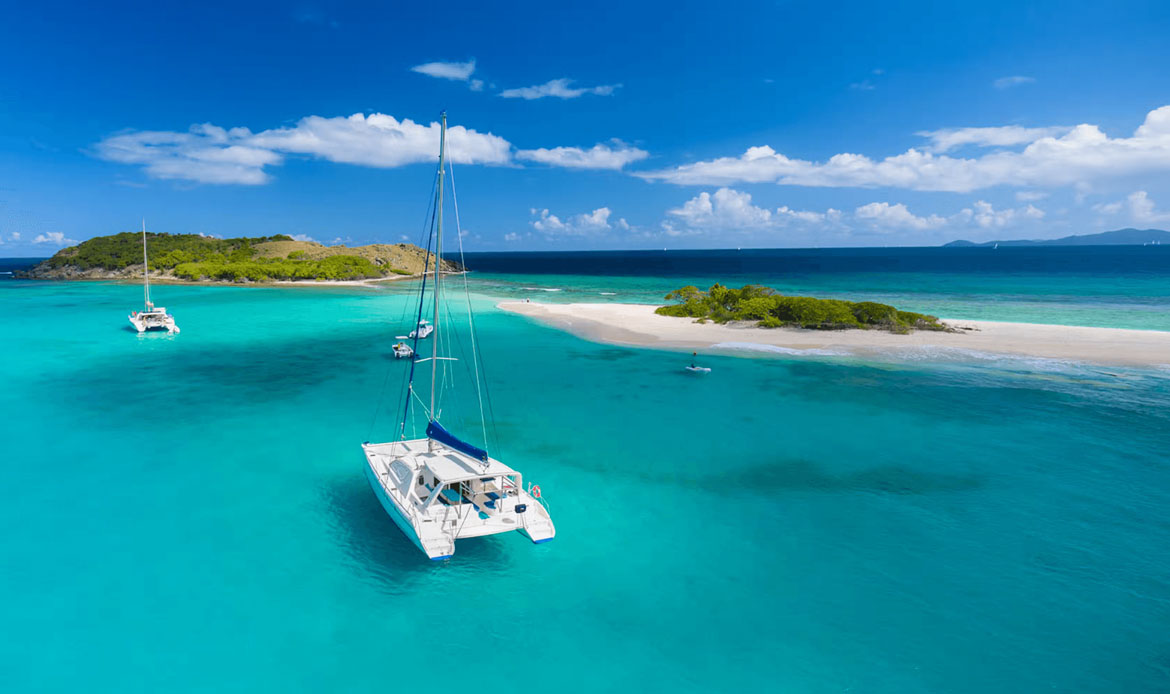For decades, the Caribbean has been a global hub for Citizenship by Investment (CBI) programs, providing investors and their families with the opportunity to obtain a second passport through legitimate and transparent channels. These programs have long appealed to individuals seeking greater mobility, security, and access to new markets. In recent years, however, the landscape of Caribbean CBI has undergone significant changes. International scrutiny, regional reforms, and targeted regulatory measures have pushed governments to enhance credibility, compliance, and oversight.
Recent Developments
One of the most notable shifts in Caribbean CBI has been heightened international oversight. Both the European Union and the United States have raised concerns about potential misuse of citizenship programs, resulting in stricter vetting procedures. This has led to enhanced due diligence requirements, more comprehensive background checks, and closer collaboration with international security databases.
At the same time, Caribbean nations have prioritized regional cooperation. Years ago, competition often pushed programs into a “race-to-the-bottom” on pricing. That trend has now reversed. In 2024, the five CBI countries signed a Memorandum of Agreement committing to common standards, including a minimum investment threshold of USD 200,000. This unified approach helps build investor confidence and reassures international partners that programs are managed responsibly and transparently.
There have also been controversies in recent years involving alleged abuses of Caribbean CBI programs — including “illegal discounting” (i.e., granting citizenship in exchange for investments that are below established levels), accusations that some agents or intermediaries helped bypass rules, and concerns about applicants with criminal or questionable backgrounds obtaining citizenship.
In response, several governments have taken concrete steps to improve oversight. For example:
- St. Kitts and Nevis has moved to make “underselling” illegal, blacklisted companies alleged to have violated CBI rules, and instituted deadlines for rectification of pricing irregularities.
- The Caribbean nations party to the 2024 Memorandum of Agreement, and related “Six Principles” agreed upon with U.S. interlocutors, have committed to standardized investment minimums, stricter vetting procedures, and enhanced information sharing.
- Opposition leaders and civil society in places like Saint Lucia have pressed for stronger regulation, more transparent processes, and greater accountability from agents and officials involved in CBI.
These actions aren’t perfect, and debate continues about how fast reforms should move or how well they are enforced. But they show that governments are responding with policy and legal changes — not just statements — and are under growing pressure from both domestic and international stakeholders to clean up and preserve the credibility of their CBI programs.
Finally, the industry is shifting away from an emphasis on low-cost passports toward a model focused on long-term sustainability. Governments are now emphasizing credibility, better governance, and stronger legal frameworks over simply lowering costs. As part of this shift, many of the Caribbean CBI nations have proposed or are already putting forward residency requirements.
Under a draft regional agreement published on July 1, 2025, the “Caribbean Five” (Antigua and Barbuda, Dominica, Grenada, Saint Lucia, and St. Kitts & Nevis) would require new citizens to spend at least 30 days physically present in the relevant country within the first five years after citizenship is granted.
Other proposed reforms include requiring applicants to take integration or orientation courses (on law, culture, and history) and showing that they have a “genuine link” to the country.
It’s important to note, however, that these changes are not yet law in most places. The proposals still await parliamentary ratification in the participating countries.
Caribbean CBI Programs Overview
The Caribbean is home to five principal CBI programs: St. Kitts and Nevis, Dominica, Grenada, St. Lucia, and Antigua and Barbuda. While they share many similarities, each program has its own requirements, advantages, and application steps.
St. Kitts and Nevis
St. Kitts and Nevis operates the world’s first and longest-running Citizenship by Investment program, often described as the “platinum standard” in the industry. Applicants can choose from four investment routes. The most popular option is a contribution of USD 250,000 to the Sustainable Island State Contribution (SISC) fund, which supports national development goals. Another option, also USD 250,000, is the Public Benefit Option, where funds are directed to approved projects with wider economic and social impact. For those preferring real estate, investors can purchase units in government-approved developments starting from USD 325,000 or opt for the private sale route with a minimum property value of USD 600,000. Real estate investments must be maintained for at least five years. Family members, including children and parents of the main applicant and spouse aged 55 years or over, can be added for additional fees (USD 25,000 for minors and USD 50,000 for adults).
St. Kitts and Nevis now allows cryptocurrency to be used as part of an applicant’s declared wealth, although applicants must also demonstrate an alternative source of funds. Additional due diligence fees apply when cryptocurrency is included.
The program offers visa-free or visa-on-arrival travel to more than 150 destinations and is highly regarded internationally for its credibility and rigorous due diligence. Applications are submitted through licensed agents and typically take around five to seven months to process.
Commonwealth of Dominica
Dominica offers one of the Caribbean’s most straightforward citizenship by investment programs, with two main routes available. The first is a contribution of USD 200,000 to the Economic Diversification Fund (EDF), which finances projects in education, healthcare, tourism, and other key sectors. The second is an investment in government-approved real estate with a minimum value of USD 200,000, provided the property is held for at least three years. Real estate applicants must also pay government fees starting from USD 75,000, with higher fees applicable for families.
Dominica’s program is known for its affordability and strong integrity. Citizenship is granted for life, can be passed on to future generations, and provides visa-free or visa-on-arrival access to over 140 destinations worldwide. The country also offers a favorable tax regime, with no wealth, gift, inheritance, or capital gains tax.
Applications are submitted through licensed agents and undergo rigorous due diligence, including background checks and verification of source of funds. Processing usually takes around four to six months, depending on the complexity of the case.
Grenada
Grenada’s Citizenship by Investment program provides investors and their families with a secure pathway to second citizenship. Dual citizenship is allowed, and eligible dependents, including spouses, children, parents, and grandparents, can be included with additional fees.
Applicants have two main investment routes. The first is a one-time contribution of at least USD 235,000 to the National Transformation Fund (NTF), which finances projects supporting Grenada’s economic diversification. The second route is investment in government-approved real estate developments, primarily luxury resorts, villas, and hotels. Real estate investments start at USD 270,000, with government fees of USD 50,000, and must be held for a minimum of five years.
Applications are submitted through authorized agents and undergo rigorous due diligence, including background and financial checks. Due diligence fees are generally USD 5,000 per adult applicant, and additional processing and interview fees apply. Approval usually takes several months, depending on the complexity of the application.
Grenada’s program offers visa-free or visa-on-arrival access to over 140 destinations and is the only Caribbean CBI country with access to the U.S. E-2 Investor Visa Treaty, allowing successful applicants to live and operate businesses in the United States.
St. Lucia
Saint Lucia’s Citizenship by Investment Program offers multiple investment routes tailored to different investor profiles. The National Economic Fund (NEF) option requires a one-time contribution of USD 240,000 for an applicant with up to three qualifying dependents, with additional contributions required for more dependents. The National Action Bond (NAB) route requires a USD 300,000 non-interest-bearing bond, along with a USD 50,000 administrative fee. For those preferring real estate, approved projects—typically luxury hotels, resorts, and boutique developments—are available from USD 300,000 plus administrative fees, with applicants receiving title to the property. The program also accepts larger enterprise or infrastructure investments at higher thresholds.
Applicants must submit through authorized agents and pay non-refundable processing, due diligence, and interview fees up front. All applicants aged 16 and over are subject to due diligence and interviews, which may be conducted virtually or in person.
The application process generally takes three to six months, depending on the complexity of the application. Upon approval, applicants are required to make the qualifying investment and take an oath of allegiance before receiving their Certificate of Registration. Saint Lucia offers visa-free or visa-on-arrival access to more than 145 countries and is recognized for its robust due diligence and compliance with international standards.
Antigua and Barbuda
Antigua and Barbuda’s Citizenship by Investment Program offers investors and their families a secure pathway to second citizenship in the Caribbean. This program is very convenient for large families. Investors can include eligible dependents (spouses, children, parents, and grandparents) in their CBI applications. They can choose from several investment routes. The National Development Fund (NDF) requires a non-refundable contribution of at least USD 230,000, supporting government-sponsored projects that enhance infrastructure and public services. Investors may also opt for approved real estate, with minimum investments starting at USD 300,000; these properties must be held for at least five years. For business-oriented applicants, a single-investor option requires USD 1.5 million, while joint investments of USD 5 million are allowed for multiple investors, with each contributing a minimum of USD 400,000. Additionally, contributions to the University of the West Indies Fund support regional higher education, with minimum amounts available through the Citizenship by Investment Unit.
CBI applications must be submitted through authorized agents and include thorough documentation, including medical certificates, investment confirmation, and personal forms. Applicants undergo detailed due diligence checks, and upon approval, the qualifying investment must be made, followed by an oath of allegiance. The full process typically takes around six to nine months, depending on the complexity of the case.
The program offers several advantages, including visa-free or visa-on-arrival travel to over 150 countries, favorable tax treatment with no wealth, gift, inheritance, foreign income, or capital gains taxes, and citizenship for life that can be passed to future generations.
Final Considerations
The five Caribbean CBI programs continue to offer compelling opportunities for investors and their families. St. Kitts and Nevis stands out for its prestige and long-standing credibility, Dominica for its cost-effective approach, Grenada for its unique access to the U.S. E-2 Investor Visa, Saint Lucia for the variety of investment options it provides, and Antigua and Barbuda for its flexibility, particularly for larger families.
Across all programs, investors benefit from visa-free access to major international destinations, the ability to include family members, and multiple investment routes tailored to different financial and personal profiles. Governments in the region are increasingly emphasizing credibility, legal compliance, and sustainable program management, giving applicants confidence in the transparency and integrity of the process.
Recent reforms and regional agreements have strengthened standards, improved due diligence, and increased investor protection. Despite challenges and external scrutiny, the Caribbean remains one of the most established and respected regions for Citizenship by Investment, offering a combination of global mobility, business opportunities, and long-term security for the next generation.
Disclaimer: This article is provided for informational purposes only and is not intended as legal, financial, or investment advice. Citizenship by Investment applications involve complex legal and financial considerations that vary by country and individual circumstances. Prospective applicants should consult with qualified legal and financial professionals before initiating any application to ensure compliance with all regulations and to make informed decisions.
About Bayat Group
With decades of experience in Caribbean Citizenship by Investment, Bayat Group helps families navigate complex requirements and choose the programs that best suit their objectives. As regulations and investment landscapes evolve, the firm’s expert guidance and careful planning ensure that clients can make informed decisions with confidence.

